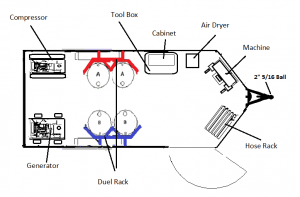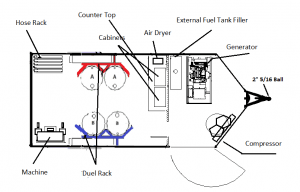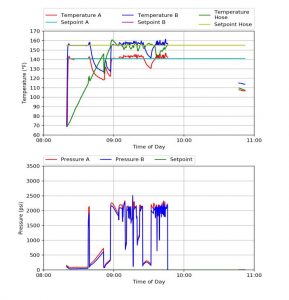Whether by choice or the imposition of an economic downturn, those within the construction trade who have realized the benefits of implementing lean concepts are way ahead in the industry. The manufacturing industry first experienced measurable results, proving the effectiveness of applying lean principles. Global recession has been behind the spread of lean construction throughout the world.
Defining Lean Construction
The multi-phase nature of construction projects leaves them subject to great waste. In most cases, waste is built into the cost of doing business. For example, you would typically increase your polyurethane material cost by 10-15% to cover the cost of waste. Also, using automated robots, such as the Spraybot, can help to increase yield by 10% or more. Largely the result of the lag between design and build, lean construction refers to the industry as a whole rather than each individual phase of a project. Lean principles work to integrate best practices and green concepts directed at minimizing waste of materials, time and effort.
Proper Planning Prevents Poor Performance
Lean construction challenges the norm calling upon all those involved in a project from contractors to architects and engineers to suppliers and owners. The focus is directed upon such issues as:
- Defects
- Excess materials
- Wasted time waiting for materials
- Overproduction
- Over processing
- Underused talent
Improved planning in these and other areas maximizes efficiency by saving time and reducing expenses. Some of these techniques include:
- Understanding value from the customer’s perspective
- Appreciating the value of the process to complete the project
- Ensuring the work flows smoothly to add value to the process
- Ensuring a successful timeline for production or delivery by achieving powers of persuasion
- Commitment to ongoing improvement for the entire process
Lean construction is not a means to an end; it is the recognition of how the available means affect the end results.
Lean Construction is Reliant Upon Collaboration
The interaction between project and production personnel is inevitable. Project management is crucial to any endeavor involving multiple contacts. The principles governing production-level management are integral to a successful project. The key to lean construction is the effective collaboration among these aspects but no more importantly than during the early stages of a project. Communication is essential to successful collaboration, but accomplishing it takes particular dedication in getting everyone involved to be of one mind.
Why Lean Construction Matters
Aside from increasing value and reducing cost, lean construction also eases environmental impact. Between reducing waste of natural materials and utilizing recycled components, these “green” practices are significantly environmentally friendly. Minimizing wasted time and materials and completing projects ahead of schedule increases value to customers throughout the world.
With unwavering dedication and discipline, a global shift is possible with a corporate commitment to lean construction training, implementation and execution of lean principles. For the industry as a whole, lean construction improves the bidding process, brings up the level of competition, increases productivity and positively impacts productivity.
Research has produced remarkable statistics supporting lean concepts in construction such as:
- 70 percent reduction in accidents
- 40 percent below market cost
- Doubling labor efficiency
- 97 percent of projects completed below or on budget
There is no denying the complexity, size, and cost of construction projects. Lean construction has the potential to affect not only the erection of new buildings, but it has powerful implications for power generation, such as wind farms, and for infrastructure, which may finally help the nation with its failing roads and bridges.
Jessica Kane is a professional blogger who writes for Federal Steel Supply, Inc., a leading supplier of carbon, alloy and stainless steel in pipe, tube, fittings and flanges.








